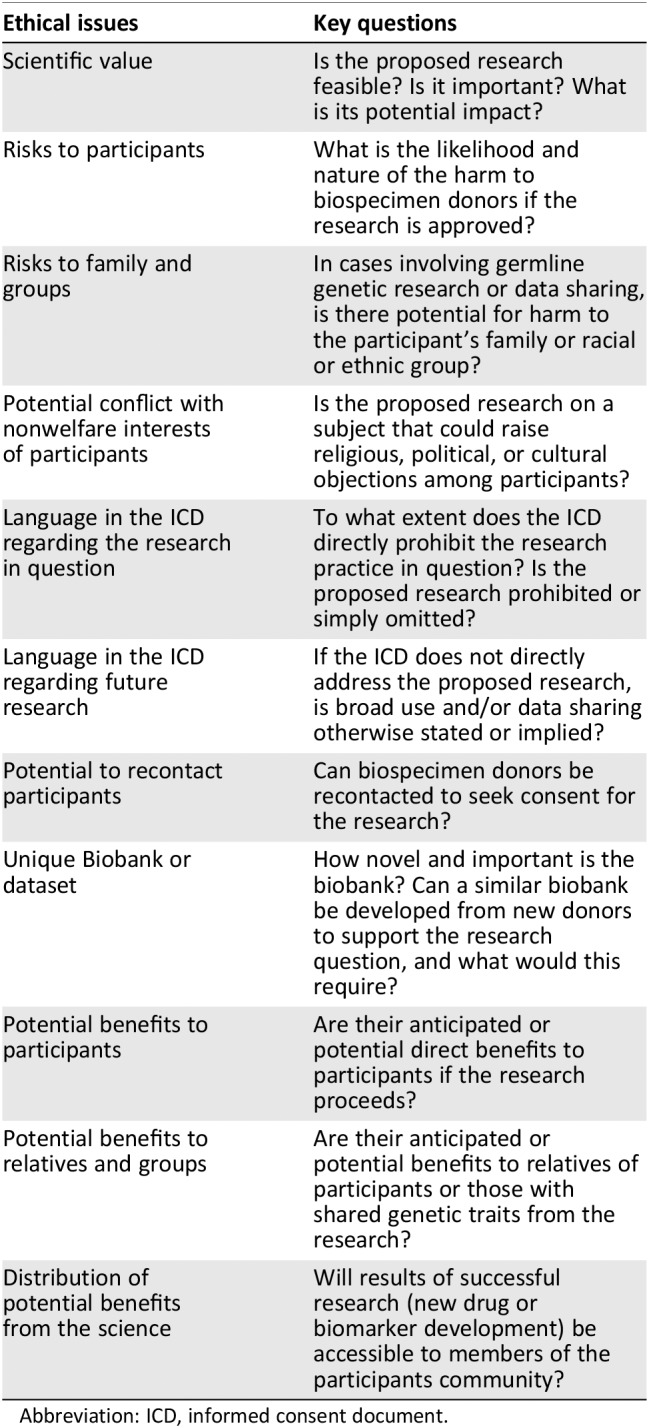Table 3.
Ethical considerations for use of archived biospecimens without specific consent
| Ethical issues | Key questions |
|---|---|
| Scientific value | Is the proposed research feasible? Is it important? What is its potential impact? |
| Risks to participants | What is the likelihood and nature of the harm to biospecimen donors if the research is approved? |
| Risks to family and groups | In cases involving germline genetic research or data sharing, is there potential for harm to the participant's family or racial or ethnic group? |
| Potential conflict with nonwelfare interests of participants | Is the proposed research on a subject that could raise religious, political, or cultural objections among participants? |
| Language in the ICD regarding the research in question | To what extent does the ICD directly prohibit the research practice in question? Is the proposed research prohibited or simply omitted? |
| Language in the ICD regarding future research | If the ICD does not directly address the proposed research, is broad use and/or data sharing otherwise stated or implied? |
| Potential to recontact participants | Can biospecimen donors be recontacted to seek consent for the research? |
| Unique Biobank or dataset | How novel and important is the biobank? Can a similar biobank be developed from new donors to support the research question, and what would this require? |
| Potential benefits to participants | Are their anticipated or potential direct benefits to participants if the research proceeds? |
| Potential benefits to relatives and groups | Are their anticipated or potential benefits to relatives of participants or those with shared genetic traits from the research? |
| Distribution of potential benefits from the science | Will results of successful research (new drug or biomarker development) be accessible to members of the participants community? |

Abbreviation: ICD, informed consent document.
